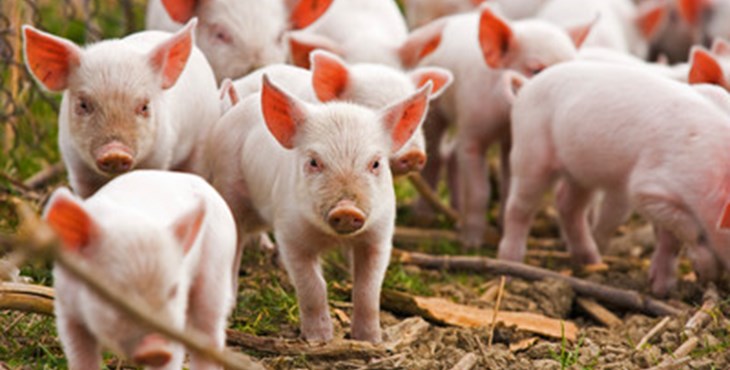On 18th July - the eve of the EU Agriculture and Fisheries Council during which the Commission informed EU ministers about the ‘End the Cage Age’ European citizens' initiative, the French Minister for Agriculture, Julien Denormandie, made two key welfare announcements: From 1st January 2022, France has committed to ban the culling of male day-old chicks and the live castration of piglets without anaesthesia.

An end to the culling of male chicks in France
Currently, 50 million male chicks are macerated or gassed every year in France and for many years this has been strongly criticised by citizens and NGOs.
In January 2020, the previous French Minister for Agriculture, Didier Guillaume, committed to a ban on the systematic culling of male chicks by the end of 2021.
Over a year later, the new Minister for Agriculture, Julien Denormandie, has stated that he wants this ban put into practice: "A draft decree will be submitted to the Council of State at the end of the summer, which will require that by 1 January 2022 all hatcheries must have installed or ordered machines for in-ovo sexing. The text will also specify that these machines must be installed and commissioned within the year.” Investment aid will be provided to support professionals as part of the “France Relance” Plan.
Several French companies had already made commitments to phase out the practice in 2020, including Carrefour (in partnership with Loué and AAT), Cocorette and Poulehouse. Since June 2021, the in-ovo sexing technology developed by Seleggt (Innovation Award 2018) has been available in France through the Novoponte hatchery.
Given the findings of scientific work on embryonic sensitivity, Compassion recommends a sexing method as early as possible for long-term legislation, ideally before the 7th day after incubation (and certainly before the 14th day) before the embryo develops the capacity to feel pain.
Ban on ‘live’ castration of piglets without anaesthesia
Currently, 70% of male pigs in France are castrated (Inaporc), yet a ban on the live castration of piglets will come into force at the end of 2021, making pain management (anaesthesia) compulsory for the castration of all piglets.
However, according to French veterinarian societies (SNGTV and AVPO) “no method of pain management during surgery [castration] is satisfactory today, as the animals can still feel stress or pain and because of the difficulties of implementation by breeders" (20/03/2020).
Compassion calls for castration of male pigs to be progressively phased out in favour of existing alternatives, such as the rearing of entire males and immunocastration - a practice already widely deployed in Belgium. The proportion of odorous carcasses in entire pigs can be greatly reduced by adjusting the pigs' feed and rearing conditions, and by working on genetic selection.
Today, 85% of the farmers in the Cooperl cooperative, France's leading pork producer, have abandoned castration altogether and more and more players in the industry are making commitments to stop physical castration: ten producer groups (Agrial, Eureden, Elpor, Evel'Up, GRPPO, Porcinéo, Porélia, Syproporcs, Porveo, Porc Armor Evolution) made this commitment in 2020.
These positive moves in legislation are welcomed by Compassion and serve as good examples for other governments to follow both in the UK and in other countries across Europe.